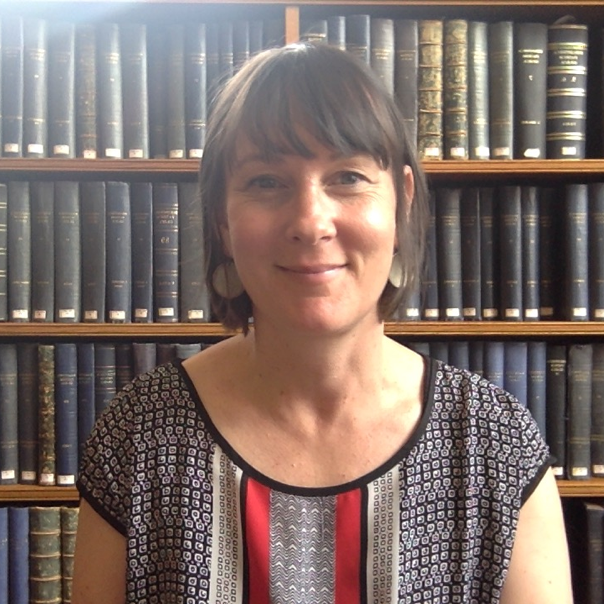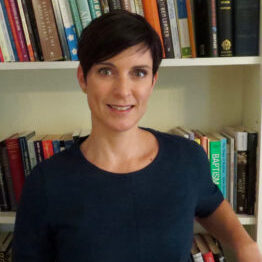Episode Transcript
[00:00:05] Speaker A: You're listening to by the well, a lectionary based podcast for preachers recorded on the land of the Wurundjeri people.
Hi, I'm Robyn Whittaker and this is the episode for the seventh week of Epiphany where we're going to be talking about two readings, Genesis chapter 45, verses 3 to 11 and verse 15, and then the gospel for the week, Luke chapter 6, verses 27 to 38. And stepping in as our guest host today is a friend and colleague, the Reverend Brendan Byrne, who is minister at Wesley Church in the Heart of Melbourne and also a chaplain at Melbourne University. Welcome, Brendan. Welcome back.
[00:00:50] Speaker B: Great. It's great to be here. Thank you, Robyn.
[00:00:52] Speaker A: Brendan, tell us a little bit about where you preach and.
Yeah. Your experience of preaching, including your own podcast.
[00:01:01] Speaker B: Well, I as you mentioned, I'm in team ministry at Wesley Church in Lonsdale street. So that's where you'll find me occasionally on a Sunday preaching and occasionally leading the evening service as well, which is a more informal worship service. So that's my ministry context. And yes, I'm the Uniting Church ecumenical chaplain at the University of Melbourne's Parkville campus, where I also have the joy of being the coordinator of chaplaincy there as well.
[00:01:41] Speaker A: Yes, lots of admin. That important?
Well, let's get into the readings and I'm going to be a bit political this week.
Back in January, a Christian bishop preached a Christian sermon in a Christian church to a self described Christian president and all hell broke loose.
I'm talking, of course, about Bishop Bud, Marion Budd speaking and appealing for mercy and compassion to President Trump. And that is profoundly relevant as we enter both of our readings today because Luke gives us this famous love your enemies, be good to those who hate you. We're going to be unpacking some of these themes, including, I think for me, one of the cruxes here is the theological claim that we do this because God, God's very self, is merciful and kind.
And part of the backlash I've seen with Bishop Bud is pretty gendered, but also reflects a certain strand of Christianity. That is to say, too much compassion, too much mercy, too much empathy is toxic. As if those things could be toxic. So we're going to delve into some of this stuff.
Where do you want to start, Brendan?
[00:03:00] Speaker B: Well, I think let's start with that Luke reading because I think that's what a lot of people will be focusing on this week.
[00:03:08] Speaker C: Yeah.
[00:03:09] Speaker A: So Jesus here is in the Sermon on the Plane, as it's called In Luke's Gospel, we've just. Before this, we've had the Beatitudes. So those upside down, blessed are the poor.
Blessed are you who are hungry now. You will be filled. So in Luke's Gospel in particular, they take on a kind of. There will be reversals of those things, and then we get this. Love your enemies, do good to those who hate you. Bless those who curse you, pray for those who abuse you. I think this is. Love is not a feeling here. Love is all of those tangible actions.
And this is pretty unique, right?
[00:03:47] Speaker B: Yeah, absolutely. I mean, I read a book when I was a teenager called the 100 a ranking of the most influential people in History. And the author of this book claimed, I think, with some justification, that this was the sole original teaching of Jesus, that everything else Jesus said and did can be located in the Hebrew scriptures and the rabbinical tradition and so forth. And indeed, things like the Golden Rule are to be found in other faith and philosophical traditions as well. But this Love your enemies is his sole radical original teaching. And I think that there's a good case to be made that that is so, because this passage does two things in my mind. The first is that it acknowledges the fact of enmity, you know, and we don't focus on that aspect of this passage enough.
In just as Jesus in the Beatitudes when he says, blessed are those who thirst and hunger for justice, is pointing us to the fact of injustice, in acknowledging that we're going to have enemies, Jesus is pointing to the fact that it is the nature and the brokenness of what it means to be human, that there are going to be relationships in our lives that for one reason or another, are toxic or dysfunctional or even dangerous. And so we are going to have people who are our enemies.
[00:05:33] Speaker A: Yep, It's. It's a.
It's a funny word because I think the Christian impulse in a lot of us is, oh, no, I'm not someone who has enemies. Or we think of enemies as enemies of the state. Right. Like when we're in war, you know, Germany was England's enemy kind of thing.
But I mean, the Greek word is eos. It literally. It's an adjective, actually. It means those who are hostile towards you. Right. So if we think of it in those broad terms, the enemy is the person who undermines you at work, maybe the person in your family who's, I don't know, aggressive to you, the bully, the person who mocks you. I mean, it has multiple layers, right through to outright abuse, obviously.
[00:06:15] Speaker B: That's right.
Absolutely. And, and Jesus is unequivocally pointing us toward that fact and that reality, you know, that there just are going to be times and occasions and people who are going to be our enemies, and that's a fact of human life. And this kind of pious, merely mouthed protestation that. No, no, no, you know, to, to, to be a Christian is to, to not have enemies. And all this sort of thing is, is in fact ignoring what Jesus himself is saying to us in the Gospel.
[00:06:54] Speaker C: Yep.
[00:06:55] Speaker A: And including, I think, particularly in this context. I mean, I think he's acknowledging human hostilities and conflict in all its forms, but particularly in the context in which Luke is probably writing these things down a few, you know, decades later.
It would also include the hostility towards Christians from Jews and others in the community. Right. You know, if you're a gentile convert who think you're downright strange for having joined this small cult like movement that followed Jesus.
So it includes that religious hostility which we do see all around the world still today.
[00:07:32] Speaker B: Absolutely.
[00:07:33] Speaker A: And in our own communities.
[00:07:34] Speaker B: Yeah.
[00:07:35] Speaker A: Here in Melbourne.
[00:07:35] Speaker C: Yep.
[00:07:36] Speaker B: And. And it also occurs in the context of empire, an occupied land and occupied people. So you are not surrounded by enemies necessarily, but you are certainly ruled by them. And, and your enemies have quite literally the power of life and death over you.
[00:07:55] Speaker C: Yeah, yep.
[00:07:57] Speaker A: So how, and I mean, it's worth saying too in this passage, the love your enemies, you know, this unique contribution of Jesus here, as we've said, love of neighbor, even love of the alien, the stranger in the land. We can find all of that in the Old Testament, particularly in Leviticus.
What does it look like?
Like, you know, how, how do we take and put in the contemporary world these sorts of, you know, if someone strikes you on your cheek, turn the other.
I guess for me, some of that is about no retaliation. So you don't respond to hostility with hostility. Can we say more than that?
[00:08:34] Speaker B: Yeah, well, I think, you know, if you look, for example, at the political class and one of the things that is commonly bemoaned about these days is the lack of bipartisanship or the loss of bipartisanship, and the fact that people are not prepared to, as it were, reach across the aisle and not just work cooperatively with others, but to actually see legitimacy in, in different points of view, I think is an expression of what this love of enemy is pointing us to, which is to recognize and acknowledge that even the people who are dangerous to us and who on occasion, we need to protect ourselves from. Because love of enemy is not about submitting to abuse yeah.
We nonetheless must still see their humanity in them so that we do not become infected by the hatred, the hostility, the violence that they may be directing towards us.
[00:09:47] Speaker C: Yeah.
[00:09:48] Speaker A: Which we know just in, you know, countless examples around the globe. And historically, when violence and hostility is responded to with violence and hostility, you just get more violence and hostility.
[00:10:00] Speaker B: Exactly.
[00:10:00] Speaker A: So this is a kingdom value of saying we've got to break that cycle and that pattern is not the way of God.
[00:10:08] Speaker B: Exactly. But it's written into our economic systems as well.
[00:10:13] Speaker A: Say more about that.
[00:10:14] Speaker B: Well, modern economic ideology is built upon the idea of competition and the idea that victory in competition is itself a signifier of virtue.
So the, the person who wins out, irrespective of the means deployed, the person who wins out, the winner, has a self evident virtue that the losers obviously lack.
[00:10:44] Speaker C: Yep.
[00:10:44] Speaker B: And, and so the, the whole idea of beggar thy enemy of drive the competition into the ground or build a monopoly.
[00:10:55] Speaker C: Yeah.
[00:10:56] Speaker A: It is based on that kind of retaliatory competitive thinking.
[00:11:00] Speaker B: Yep, absolutely.
[00:11:02] Speaker C: Yeah.
[00:11:02] Speaker B: And, and that then infects every other aspect of our life, including personal lives, including political lives. And you know, people talk about how social media, for example, has magnified the hostility in public discourse.
The technology perhaps enables that, but it doesn't inevitably and necessarily enable that.
[00:11:28] Speaker C: Yeah.
[00:11:28] Speaker B: There's something else going on in the background that promotes the use of technology in that way. And, and it is this idea, I think, of hostile competition.
[00:11:41] Speaker C: Yeah.
[00:11:43] Speaker A: And along with that, perhaps the, the fact that all of these platforms now are like commodified. Right. It's about making money. So. And outrageous things and hateful things and things that get lots of clicks and eyeballs. You know, it's well tracked now that in the, the social media space that stuff will get far more clicks and eyeballs and therefore makes far more money for platforms than someone writing kind and nice messages to.
[00:12:11] Speaker B: Yes. It's almost the reductio ad absurdum of conventional mainstream tabloid media with their ridiculous headlines and whatnot.
Except the impacts, the effects are far more damaging.
[00:12:27] Speaker C: Yep.
[00:12:28] Speaker A: To the average person, I think.
[00:12:29] Speaker C: Yep. Yep.
[00:12:30] Speaker A: I want to circle back to something you raised before too, because I'm always struck when we read these sorts of passages that there is also a need to be careful because we have, you know, don't return abuse for abuse, Love, forgive. As we get into this text, it talks about again what this looks like, expecting nothing in return.
You know, not judging, not condemning and forgiving.
We live in a culture where there's huge amounts of domestic violence and where women particularly In Christian circles have too often being told, it's your lot in life to accept this, be kind, be loving, you'll somehow convert them over, forgive. But you just said before, this is not about tolerating abuse. How do we preach in a way that perhaps names that all?
[00:13:17] Speaker B: Well, we have to go back to Jesus. Naming of enemy.
[00:13:21] Speaker C: Yes.
[00:13:22] Speaker B: Some people are just our enemies, and if they are, then that means that we need to act in a way that protects us from their baleful impact upon us.
So the. The identification of enemy is important, but it is important for, I think from two points of view. One, so that we do not conflate love of enemy with toleration of abuse.
[00:13:52] Speaker C: Yeah.
[00:13:54] Speaker B: The other is from understanding what forgiveness properly is.
And it is not letting our enemies, our abusers, off the hook. It is, in fact, about not allowing ourselves to be infected by the violence that they perpetrate and that violence then taking over the rest of our lives.
[00:14:19] Speaker C: Yeah.
[00:14:20] Speaker B: And I'm not speaking here about trauma and, and the need for healing from trauma. I'm talking about the fundamental dehumanization of the other that is involved in hatred.
[00:14:34] Speaker A: Yes. You know, and. Yeah.
[00:14:37] Speaker B: So. So Jesus is pointing us toward a tricky balancing act here between recognizing that someone is damaging to us and taking the necessary action to protect ourselves from that damage, but at the same time not doing to them what they do to us and dehumanizing them.
[00:14:57] Speaker A: That's a great way to put it.
[00:14:58] Speaker C: Yeah.
[00:14:59] Speaker A: And I was really struck reading this passage again, this time that there's a very clear theological rationale for this. I mean, this is not some, you know, liberal, sappy, love your enemies because we love everybody and, you know, peace and hugs. It's do this because you, in doing so, you become children of God. So there's something deeply here about identity, what it means to belong to God's family.
And because God is kind to the ungrateful and the wicked, and because God is merciful. So kindness and mercy are at the heart of the way. Jesus is talking about the divine here.
[00:15:38] Speaker B: Yeah. And. And it's a reminder, too, that in as much as we still have a relationship with these people through our shared humanity, they still have a relationship with God. That they are still children of God and God still loves them as unconditionally as God loves us.
[00:15:58] Speaker C: Yeah.
[00:15:59] Speaker A: Even when they're wicked and awful.
[00:16:01] Speaker B: And so that challenges all our notions of justice and revenge and righteous indignation.
[00:16:09] Speaker C: Yeah.
[00:16:09] Speaker B: And. And the assumptions to moral superiority that are built into that.
[00:16:13] Speaker C: Yeah.
[00:16:14] Speaker A: This. So I'm. We're going to move on to the Genesis 45 reading, but so much to unpack here as hopefully you're hearing. We could say more, but I think in, in going to Genesis next, the reason we wanted to delve deeply into these two passages today is we're going to see it's a really practical example of what this looks like in the story of Joseph.
[00:16:35] Speaker C: So.
[00:16:35] Speaker A: So let's go there next.
So the lectionary gives us these patches of verses, but really just start reading from the start of chapter 45, and we come in here at the end of the Joseph story. So, Brendan, do you want to locate us, tell us what we've kind of missed as briefly as we've missed chapters? Right.
[00:16:58] Speaker B: Well, we've missed 45 chapters or something, but yes, I mean, Joseph was the youngest son of Jacob, and being the youngest, he's spoiled and doted on and all the rest. And his brothers are jealous and they want to kill him, but in the end they decide to sell him into slavery instead because, hey, that'd be better.
[00:17:22] Speaker A: That's great.
[00:17:22] Speaker B: Yeah. And. And so Joseph ends up a slave in Egypt and he, through luck and circumstance and his own ruthless cunning, he works his way up and becomes the power in the land. Effectively, he's the ruler who pulls the strings of power behind Pharaoh. And, you know, and it's important to remember here that, you know, we think of people like Putin and Trump and others as autocrats, but compared to the pharaohs of Egypt, they were amateur.
True. You know, so we are talking about an absolute monarch with the literal power of life and death over other people.
[00:18:02] Speaker A: No checks and balances, no congress and anything else.
And Joseph being the right hand man. Right. Which means Joseph too has power over life and death and in this story, the food supply, which is keeping people alive.
[00:18:16] Speaker B: That's right. So we're in a period of economic drought, of environmental drought, of economic straightened times for people. And Joseph is the guy who's controlling the food supply.
[00:18:29] Speaker C: Yep.
[00:18:30] Speaker A: So, you know, I was struck here. I mean, the story starts with huge amounts of emotion. So at this point, Joseph has had interaction with these brothers. He's actually tested them out in a variety of ways, but they still haven't recognized who he is. So the scene we leap into here is the one where Joseph, I mean, he can't, we're told he can't control himself. He cries. He. He gets a private audience with his brothers and makes himself known to them. And their reaction is fascinating because they are totally dismayed when they realize this is Their brother, perhaps. Because they recognize their entire fate is in the hands of someone they utterly.
[00:19:11] Speaker B: Wronged of their enemy. Yeah, he is their enemy right at this point in time. And, and he could quite literally putting foot on their neck. And, and frankly they expect him to because that's what rulers did in this time and place.
[00:19:28] Speaker A: That's what people with power do. They use their power to retaliate and get what they want.
[00:19:33] Speaker B: Exactly, exactly. And, and in, in many ways, Joseph in this scene is a practical example of what loving your enemy looks like. Because he doesn't let his brothers off the hook, interrogates them and says, you know, I'm Joseph, who you sold into slavery.
[00:19:51] Speaker C: Yeah.
[00:19:52] Speaker B: And. And so he's laying it out to them exactly what they've done and what they're responsible for.
[00:20:00] Speaker A: Yeah, he does. Yeah. He names the truth of the crime. So this isn't again, a quick leap to forgiveness that we can often be inclined to do in the Christian tradition is, you know, because we know forgiveness is the goal, we want to jump there.
We're seeing stages here of naming the truth, naming the harm that's being done.
He's already, as we've said, tested them in previous scenes where he's given them things to do and sort of made bargains with them, I think, to try and see if they've any change of heart. And in those stories they have gone out of their way to protect the other younger brother, Benjamin from, because he's still the favorite of Jacob. And so there is in a sense a change of character there where they recognize that this son is precious and, and then he shows them incredible grace and mercy.
[00:20:54] Speaker B: Yes, that's right. And, and, and in many respects this episode is a prototype for restorative justice.
[00:21:04] Speaker C: Yeah.
[00:21:04] Speaker B: Because Joseph as the victim gets to name the crime that has been committed against him and gets to tell his victimizers to their face.
This is exactly what you have done to me.
[00:21:19] Speaker C: Yeah.
[00:21:20] Speaker B: But the purpose of that is not then to visit retribution upon them. It is to restore the relationship.
[00:21:32] Speaker C: Yeah.
[00:21:34] Speaker A: And, and to literally give them life. I mean, in this context, again, he could, he could put them to death. He, he could send them away empty handed and condemn them to actually slow starvation.
But he doesn't. And we in the scenes that follow, he's very generous to them, but he, his own narrative in terms of what's happened to him. I mean, he credits, as we often do when we've suffered greatly, we can see the hand of God despite our suffering. So he credits God with, this is all Part of the plan, but talks in verse five about, you know, God sent me before you to preserve life. He has.
I want to be careful how I phrase this. It's not he has, in the midst of enormous suffering, he has found ways to still bring life to other people and appreciate God's presence with him in that.
[00:22:28] Speaker B: And that sense of God's presence in his life as the restorer of his life is not that kind of marking out of me for great things, as unfortunately, far too many of our political leaders do, particularly after they win an election.
But it is that sense of if he gives in to the temptation to exercise retributive power against his brothers, then something within him will die. Yeah, that. That idea that God has restored his life is a recognition that if he gives way now, that life within him will die.
[00:23:23] Speaker A: And instead. And this sort of circles us back to the Luke reading. He behaves in this godlike way with the kindness and compassion of God and passes on that gift of life to others. Right. And arguably, if we take the bare historic bones of the story, we don't know how much of this is grounded in actual facts, but, you know, there's a famine and his character is the one who basically saves people from mass starvation. You know, and.
[00:23:51] Speaker B: And just as Jesus injunction to love our enemies is counterintuitive to the way that we are encultured, this narrative in Genesis is counterintuitive to the way that political dynamics work out.
[00:24:05] Speaker C: Yeah.
[00:24:05] Speaker B: And. And to the way that our, again, our ideas of justice, which are really grounded in notions of vengeance work out.
[00:24:15] Speaker C: Yeah.
[00:24:16] Speaker A: There's so many implications for all sorts of things. Right. Our judicial system and the fact, you know, our jails, at least here in Australia, I think, are not restorative in any way at all. They're punitive.
You know, our political system, I think one of the big questions. And here in Australia, we're going to have a federal election at some point in the next couple of months.
You know, increasingly we see political leaders around the world who are. Step into that space for their own benefit and gain.
And it almost seems old school to want to see a political leader who goes into it for the common good and can work across the divides for the good of the whole community, which is the kind of stuff we're seeing in the Joseph story. Right. To overcome.
[00:25:00] Speaker B: Yeah, yeah, absolutely. And I mean, and, you know, so many of our political leaders in. In their attacks on asylum seekers and talk about immigration and whatnot, they are not just targeting the most vulnerable, they are distracting away from the fact that the injustices and the insecurities we feel at present are functions of the system as it has been playing out for at least the last half century.
[00:25:35] Speaker C: Yeah.
[00:25:35] Speaker B: You know, and. And instead of being honest enough to actually acknowledge, you know, maybe we need to change the way we do things.
It's far too easy to attack a vulnerable group of people.
[00:25:51] Speaker C: Yeah.
[00:25:51] Speaker B: And it could have been very easy for Joseph to have attacked his brothers.
[00:25:58] Speaker C: Yeah.
[00:25:58] Speaker A: They're vulnerable. They're nobody in his world.
[00:26:00] Speaker B: And it could have been very easy for Jesus to. To gather a popular following by saying, that group of people over there, they're the problem.
[00:26:10] Speaker A: Yes.
[00:26:11] Speaker C: Yeah.
[00:26:11] Speaker A: And he doesn't do that. In fact, he finds the people who other people say are their problem and brings them into the fold.
[00:26:16] Speaker B: Precisely.
[00:26:17] Speaker C: Yeah.
[00:26:18] Speaker A: And I'm wondering. I mean, obviously one could preach this in all sorts of directions this week, and I'd probably be tempted to do some of the things we're doing and name some of the political realities going on in the world. But it strikes me we see in both the Joseph story and the Luke teaching something that's also deeply personal about just how transformative it can be for ourself. I think liberating spiritually to actually pray for our enemies.
[00:26:48] Speaker B: Yes.
[00:26:49] Speaker A: That person that we might feel powerless over in the workplace or the home or wherever it is, but to actually pray all of the blessings and goodness of God on them to fulfill the best of their potential does change the way we relate to them, Right?
[00:27:05] Speaker B: Absolutely.
[00:27:06] Speaker A: Yeah.
[00:27:06] Speaker B: I mean, I once saw a sign outside of church that said, love your enemies. It messes with their heads.
[00:27:14] Speaker A: But.
[00:27:15] Speaker B: But the idea.
[00:27:16] Speaker A: Also a good reason to do it.
[00:27:17] Speaker B: But the idea messes with our heads, too.
[00:27:20] Speaker C: Yeah.
[00:27:21] Speaker B: Because we are encultured into those economic, social, cultural ideas about being on top, being in charge, getting our own back. But this is telling us, and again, I sense it in the Joseph story that all those things don't bring life and something within us dies and our relationships are sundered.
[00:27:46] Speaker C: Yeah.
[00:27:47] Speaker A: You know, you're reminding me of a. It's in one of the C.S. lewis books he took. He tells the scene of his atheist friends asking him, why do you pray? After his wife's died? And, you know, clearly it makes no difference. And he says, I don't pray to change God or the world. I pray to change myself.
[00:28:02] Speaker B: That's right.
[00:28:02] Speaker A: Exactly.
And, you know, it is one simple and perhaps not so simple thing we can do that does bring us into that different way of. I mean, all of this, what we're talking about is obviously so deeply countercultural at the personal, the political, at every level.
Any last words, Brendan? What. What would you preach, or you probably are preaching on this. This.
[00:28:27] Speaker B: Well, I'm in the fortunate position of not having to preach this weekend. I get to sit in the pews. But look, I. I just think we need to grasp the radical nature of both of these texts about what they say about some of the less pleasant realities of what it means to be a human being in relationship with other human beings, but to recognize also that those other human beings are also in relationship with God, as are we, and that that reality calls us to a different approach, one that gives life instead of inflicting upon ourselves if nobody else, you know, a mortal wound.
[00:29:21] Speaker A: Well, Brandon Byrne, thank you very much for being with us today.
[00:29:24] Speaker B: Thank you for having me.
[00:29:28] Speaker A: By the well is brought to you by Pilgrim Theological College and the Uniting Church in Australia. It's produced by Adrian Jackson. Thanks for listening.





